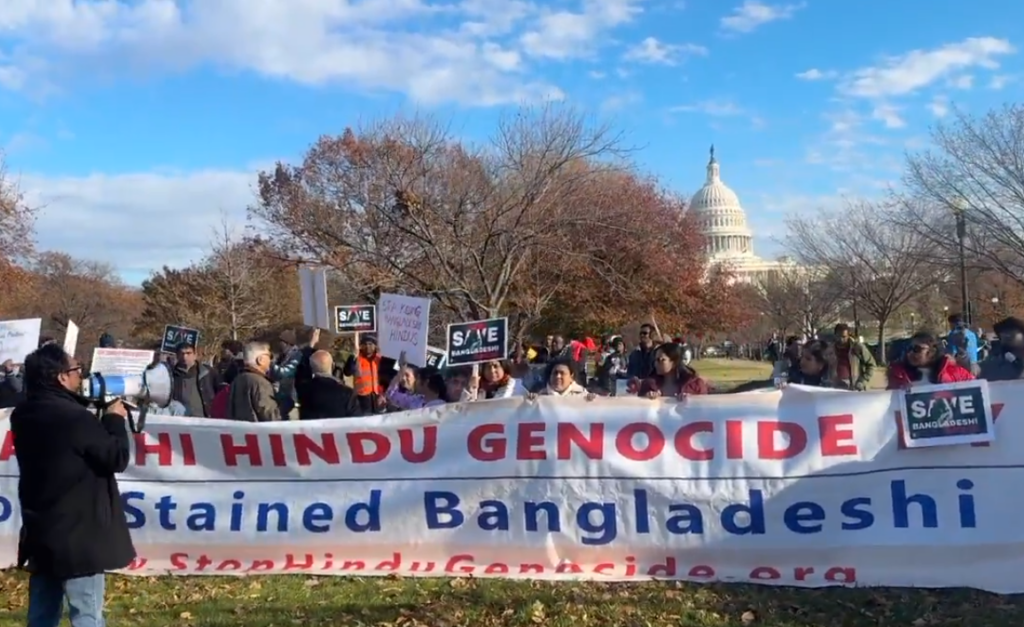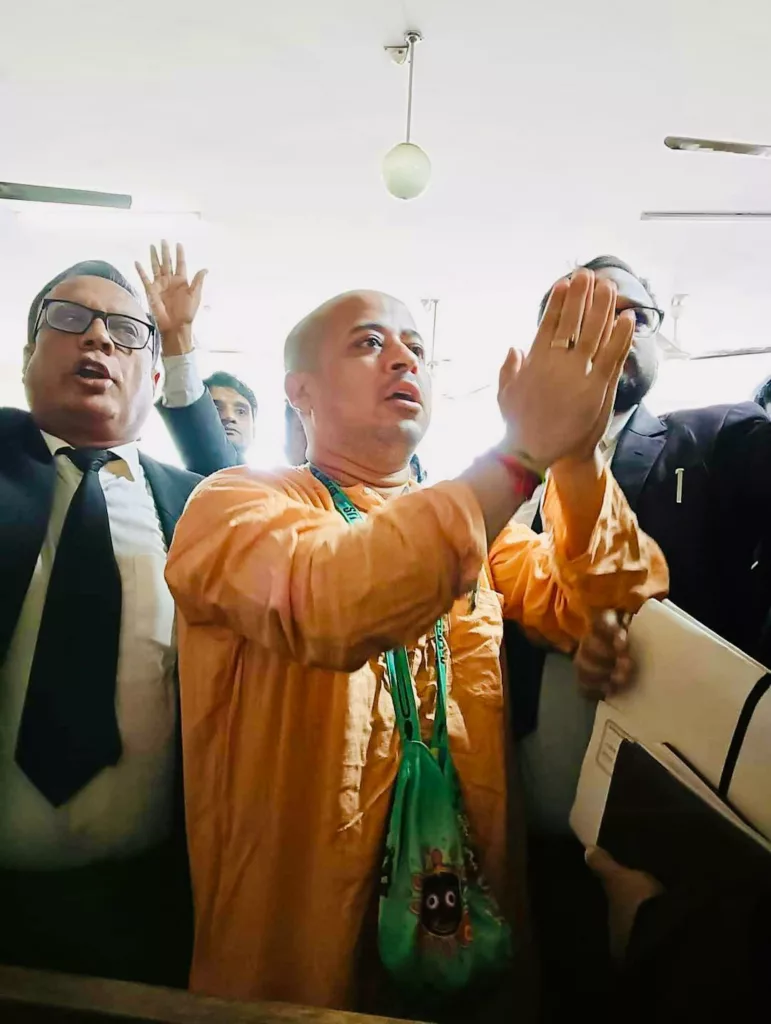
As Hindus in Bangladesh continue to face the worst atrocities experienced in decades and Hindu monk Chinmoy Krishna Das (aka Chinmoy Prabhu) remains jailed without any legal representation, Indian Americans have marched against these attacks, taking a route from the White House to the US Capitol.
Raising slogans like “We Want Justice” and “Protect Hindus”, the peaceful demonstrators have urged the outgoing Joe Biden administration and the incoming Donald Trump administration to ask the new government in Bangladesh (headed by Muhammad Yunus) to take steps to protect Hindus and also to take action against those attacking Hindus.
The Indian American protest march was held on Monday, organised by StopHinduGenocide.org, Bangladeshi diaspora organisations, and HinduACTion.
The protesters demanded that companies in the United States stop buying garments from Bangladesh, which is heavily dependent on its exports to the US.
This march is not just a cry for justice; it is a demand for accountability. Today, the Bangladeshi Hindu community and the larger Hindu diaspora from the Indian subcontinent has come [out] in support of the Bangladeshi Hindu community, because there is continuing violence going on in Bangladesh, specifically in Chittagong and Rangpur area, as well as in some other parts of the country.
Utsav Chakrabarti, from HinduACTion

“Hindus [in Bangladesh] are being targeted; their temples are being burnt down and destroyed. Their houses are being looted. Chinmoy Das, who is one of the Hindu leaders in the Chittagong area, has been incarcerated and is facing torture. The community around the world is extremely worried about it. So, people are trying to make sure that the White House and people in America are aware of what’s going on in Bangladesh,” said Utsav Chakrabarti, from HinduACTion.
“We have gathered here in front of the White House to ask for justice for Bangladeshi Hindus…,” said Narasimha Koppula from Virginia.
Srikanth Akunuri from HinduACTion said that unspeakable tragedies were taking place for Hindus in Bangladesh. “We also demand that [former] ISKCON leader Chinmoy Das be released,” he said.
According to media reports and eyewitness accounts on social media, Hindus in Bangladesh are being assaulted and murdered, their properties are being looted, and their places of worship are being destroyed. Priests and monks are not being spared.
These rampant attacks and destruction began with the ouster of former Bangladesh Prime Minister Sheikh Hasina in early August 2024. The installation of the Muhammad Yunus government has not stopped the attacks on Hindus in Bangladesh.
Chinmoy Krishna Das, a former member of the global Hindu spiritual organisation ISKCON, was arrested on a “sedition” charge on November 25. Since then, he has had no legal representation, as at least 70 lawyers have been allegedly “falsely sued” to prevent them from appearing in court for the monk. Das is likely to remain in prison all of December.
TBSnews.net reported: “Following the rejection of Chinmoy Das’s bail application on 26 November, clashes erupted in the court premises between protestors and police, resulting in violence. During these clashes, Advocate Saiful Islam Alif was fatally attacked.”
During the White House-US Capitol protest march by the Indian diaspora and the Bangladeshi diaspora, Prasenjit Dutta, head of a Bangladeshi community organisation from Atlantic City, demanded the release of Chinmoy Das. “I don’t know why the Biden administration is not doing anything. We are asking the White House to act,” he said.
Mohinder Gulati, president of the Global Hindu Temple Network, said that the atrocities against Hindus in Bangladesh were an attack against this minority community. “Bangladesh should be debarred from sending peacekeeping forces to other countries. We have also written to the United Nations Human Rights Organisation, UN Women, and UNICEF that all the international obligations that Bangladesh has, that they should be held accountable for those obligations,” he said.
“World Bank, Asian Development Bank, IMF, they are lending to Bangladesh. They have their own policies. These organisations have their gender justice policies and social justice policies. They should ask Bangladesh to comply with the policies of the lending organisations before they can lend,” said Gulati.
—With inputs from CtoI News Desk


